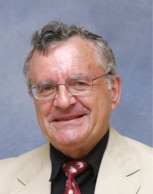You are currently browsing the tag archive for the ‘cognitive empathy’ tag.
Tag Archive
How to Implement Social Change (David Brooks)
February 11, 2018 in Global Crisis Blog, Innovation Blog | Tags: Ashoka, Bill Drayton, cognitive empathy, social entrepreneur | Leave a comment
How to Implement Change (David Brooks)
By Shlomo Maital
Increasingly, when I teach entrepreneurship, I find my students are eager to learn about “social entrepreneurship” – using creativity and startups to achieve social goals, rather than capitalist for-profit goals.
David Brooks has written a fine column in the Global New York Times, Feb. 9, on how social entrepreneurship fosters change, and tells the story of Ashoka, the organization founded by Bill Drayton that fosters social entrepreneurs, thousands of them, world wide. He writes:
“Bill Drayton invented the term “social entrepreneur” and founded Ashoka, the organization that supports 3,500 of them in 93 countries. He’s a legend in the nonprofit world, so I went to him this week to see if he could offer some clarity and hope in discouraging times. He did not disappoint.”
Here is how Brooks describes what he learned from Bill Drayton:
“Drayton believes we’re in the middle of a necessary but painful historical transition. For millenniums most people’s lives had a certain pattern. You went to school to learn a trade or a skill — baking, farming or accounting. Then you could go into the work force and make a good living repeating the same skill over the course of your career. But these days machines can do pretty much anything that’s repetitive. The new world requires a different sort of person. Drayton calls this new sort of person a changemaker. Changemakers are people who can see the patterns around them, identify the problems in any situation, figure out ways to solve the problem, organize fluid teams, lead collective action and then continually adapt as situations change.
For example, Ashoka fellow Andrés Gallardo is a Mexican who lived in a high crime neighborhood. He created an app, called Haus, that allows people to network with their neighbors. The app has a panic button that alerts everybody in the neighborhood when a crime is happening. It allows neighbors to organize, chat, share crime statistics and work together. Solving problems is a critical skill. It may be that the remaining jobs look for that skill set, but people are not comfortable with that… To form and lead this community of communities, Gallardo had to possess what Drayton calls “cognitive empathy-based living for the good of all.” Cognitive empathy is the ability to perceive how people are feeling in evolving circumstances. “For the good of all” is the capacity to build teams.”
Remember those two key phrases. “Cognitive empathy” – living for the good of all, not for the good of myself and my loved ones. For the good of all – implement cognitive empathy’s insights to effect change by building powerful teams.
That’s the formula. Now, let’s all get to work on it!


